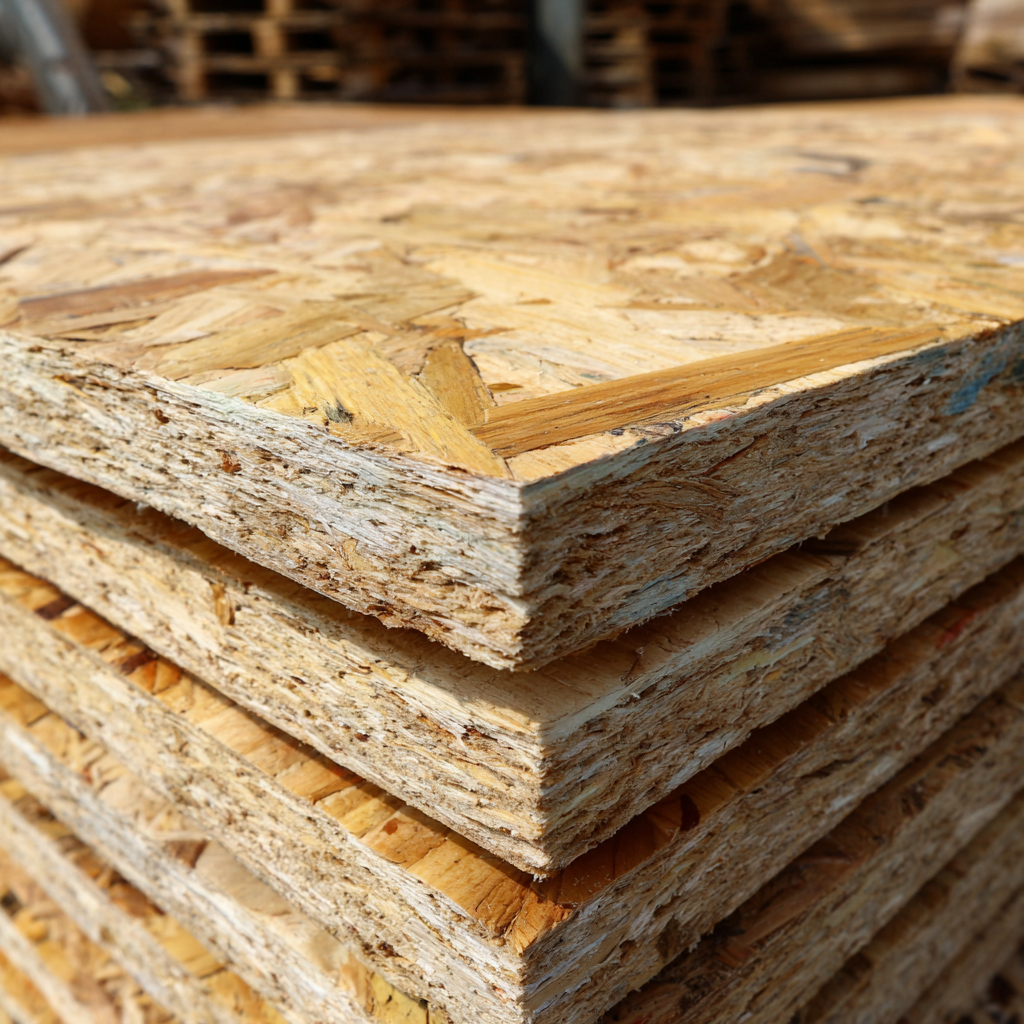In today's global marketplace, understanding export and import certifications is essential for ensuring the success of any product, including the highly versatile Osb Board Sheet. As manufacturers and suppliers navigate the complexities of international trade, they must familiarize themselves with the various certifications required to meet safety, quality, and environmental standards. The Osb Board Sheet, known for its durability and cost-effectiveness in construction and industrial applications, requires specific documentation to facilitate smooth cross-border transactions. This blog will delve into the key certifications involved in the export and import process for Osb Board Sheets, exploring the implications they have on compliance, market access, and overall product success. By gaining a clear understanding of these certifications, businesses can position themselves more competitively in the global market while ensuring that their products meet the highest quality standards.

Export certifications play a significant role in enhancing the credibility of OSB (Oriented Strand Board) board sheets in global trade. According to a report published by the International Forest Products Association, over 80% of companies that export OSB sheets perceive certification as a crucial factor for accessing international markets. Export certifications ensure that products meet specific quality and safety standards, which can significantly reduce trade barriers and facilitate smoother transactions between countries.
Furthermore, certified OSB board sheets often command higher prices in the international market due to their compliance with environmental and sustainability standards. A study by the Global Timber Forum highlighted that products with recognized export certifications can increase sales by up to 25%, as they appeal to environmentally conscious consumers and businesses. In an increasingly competitive global landscape, possessing proper export certifications not only bolsters marketability but also fosters trust and transparency, ultimately benefiting all stakeholders in the supply chain.
| Certification Type | Description | Benefits | Applicable Regions |
|---|---|---|---|
| ISO 9001 | Quality Management System | Improves product quality and customer satisfaction. | Global |
| FSC Certification | Forest Stewardship Council certification for sustainability. | Promotes responsible forest management. | International |
| CE Marking | Indicates conformity with health, safety, and environmental protection standards. | Facilitates market access in EU countries. | European Union |
| CARB Certification | California Air Resources Board standard for formaldehyde emission. | Ensures low chemical emissions, promoting health and safety. | United States |
| JAS Certification | Japanese Agricultural Standards for products. | Enhances product credibility in the Japan market. | Japan |
When considering the import of OSB board sheets, understanding essential import certifications is crucial for ensuring quality assurance. Import certifications serve as a guarantee that the products meet specific standards necessary for safety and performance. These certifications often encompass compliance with regulations related to health, environmental impact, and manufacturing processes. In the competitive landscape of the building materials industry, having certified products can significantly enhance a company’s reputation and consumer trust.

Furthermore, navigating tariffs is an important aspect of importing OSB board sheets. Tariffs are taxes that countries impose on imported goods, which can affect pricing and demand. Importers must be aware of these tariffs when budgeting for their purchases, as they can significantly impact the overall cost of importing OSB products. Compliance with import certifications not only helps in mitigating risks associated with tariffs but also ensures that the products adhere to necessary quality standards, thus facilitating a smoother trade process. Adopting a rigorous approach to quality assurance through proper certification can ultimately lead to a more sustainable and profitable business model in the OSB board market.
When navigating the export and import of Oriented Strand Board (OSB), understanding key regulatory standards is crucial for manufacturers and distributors. Compliance with various international standards ensures that OSB products meet safety and quality requirements, facilitating seamless trade. The American National Standards Institute (ANSI) and the International Organization for Standardization (ISO) are two core organizations setting benchmarks. For instance, ANSI/APA PR-Rate standards provide guidelines on structural performance, which are pivotal for OSB used in construction.
Importantly, different countries may have specific certifications or guidelines that OSB must meet. For example, the European Union's CE marking indicates compliance with safety and environmental standards, particularly under the European Timber Regulation (EUTR), which mandates that all wood products, including OSB, come from sustainably managed forests. According to a 2022 industry report, the global demand for OSB is projected to grow by approximately 5% annually, highlighting the importance of adhering to such regulatory frameworks to access international markets effectively. Adopting these standards not only assures stakeholders of product reliability but also enhances market competitiveness amidst evolving trade regulations.
Navigating the export and import certification process for OSB board sheets can seem daunting, but understanding the classification requirements is crucial for a seamless transaction. The UK Integrated Online Tariff provides detailed guidance on the classification of wood products, including OSB boards. Properly classifying your product according to the tariff headings can significantly affect the duties, taxes, and compliance requirements associated with your shipment.
When importing OSB board sheets into Northern Ireland, familiarity with these classifications is even more essential due to specific regulations that apply in this region. Ensuring that all necessary documentation aligns with the classification can prevent delays and interruptions in your supply chain. Businesses must remain vigilant about any updates or changes in tariff codes and import regulations to maintain compliance and optimize their operations.
Certification plays a crucial role in the export and import of OSB (Oriented Strand Board) products, significantly impacting pricing and marketability. According to a report by IBISWorld, the global OSB market is expected to reach $22.5 billion by 2024, with adherence to certifications being a primary driver of demand. Certifications such as the U.S. Department of Agriculture's (USDA) BioPreferred program and the Forest Stewardship Council (FSC) certification provide assurances regarding the sustainable sourcing and production of OSB. These certifications not only enhance credibility but also allow manufacturers to command higher prices in competitive markets.

Furthermore, the presence of certifications can influence consumer choices, as data from a recent survey by the American Wood Council indicates that 75% of consumers prioritize environmentally friendly products. The report highlights that OSB boards certified by recognized bodies can see a price premium of up to 15% compared to uncertified products. This market behavior underscores the importance of obtaining relevant certifications to enhance the marketability of OSB products, appealing to both environmentally conscious consumers and businesses looking to comply with regulatory standards.
